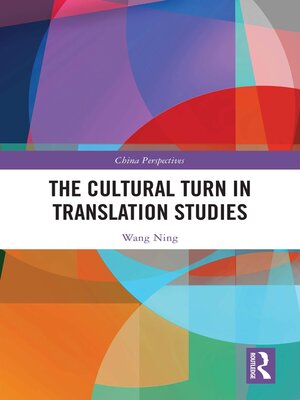
Sign up to save your library
With an OverDrive account, you can save your favorite libraries for at-a-glance information about availability. Find out more about OverDrive accounts.
Find this title in Libby, the library reading app by OverDrive.



Search for a digital library with this title
Title found at these libraries:
| Library Name | Distance |
|---|---|
| Loading... |
Applying the latest Western translation theories to the situation in China, this book redefines translation from an interdisciplinary and intercultural perspective, bringing intercultural semiotic translation into the sight of translation researchers.
This book systematically expounds on the cultural turn in translation studies and contributes to the escape of translation studies from the "cage of language". It focuses on discussing the deconstructive, postmodernist, and cultural translation theories that have motivated and promoted the cultural turn, especially Benjamin's translation theory, Derrida's deconstructive view of translation, and postcolonial translation theory. It also discusses in detail the theories of major international translation theorists, including Hillis Miller, Wolfgang Iser, Edward Said, Gayatri Spivak, Homi Bhabha, André Lefevere, Susan Bassnett, and Lawrence Venuti. These theories are mostly based on examples from Western or English-language texts, leaving a wide gap in the discourse of the field. This book seeks to fill that gap. For example, intercultural semiotic translation is defined and explained through the successful experiences of the Chinese translator Fu Lei. The role of translation during the Chinese revolution and the relocation of Chinese culture in the global cultural landscape through translation are also discussed.
This book will be an essential read to students and scholars of translation studies and Chinese studies. It will also be a useful resource for translators and researchers of comparative literature and cultural studies.







